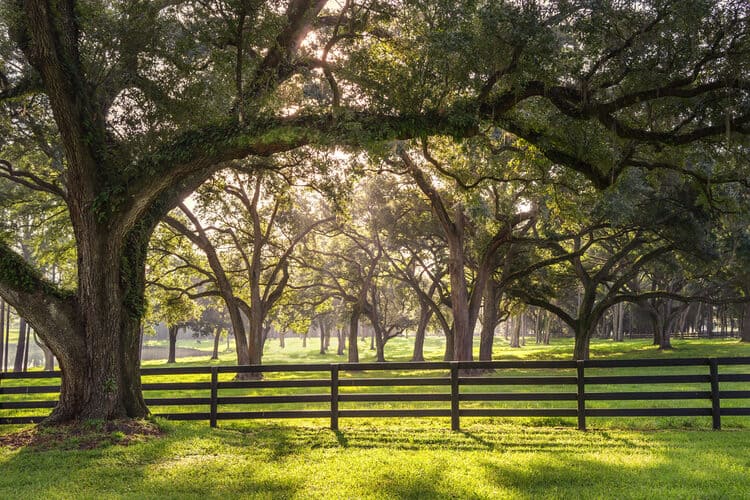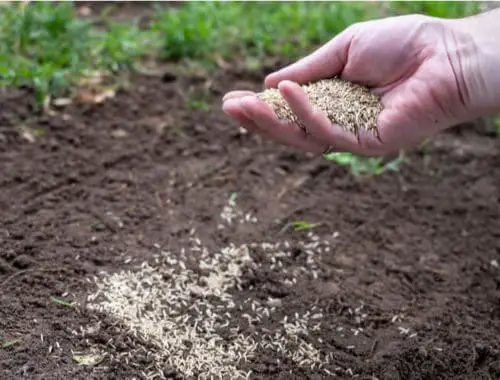With the changes brought about by the recent pandemic, more and more Americans are working from home. Because more people have the opportunity to work remotely, many are moving out of crowded cities and busy suburban areas and discovering the benefits of rural living; in fact, in a recent study, nearly half of Americans said they would like to live in a small town or rural community1. From these less-inhabited places, they can enjoy all of the benefits that rural living provides without losing their big-city jobs and incomes. You might wonder what is drawing folks into these areas. Read on to learn about four benefits of rural living.
Fresh Air and Nature

Image courtesy of Pixabay
The first thing you might think about when it comes to living out in the country is the abundance of fresh air and the natural surroundings. If you want to see a lot of stars at night or if you want to hear the quiet gurgling of a nearby creek without it being overrun by sounds of traffic or construction, then a rural area is the place to be. With fewer people per square mile, you’re more likely to see wildlife that lives in your area of the country. Depending on where in the country you live, you might be privileged enough to see deer, moose, bobcats, mountain lions, bears, and a variety of birds that might normally hide when there are a lot of noises and movement from humans.
Your health can improve from being away from the busy city air pollution, as well. Many rural areas have less pollution than their urbanized counterparts. In the UK, doctors and studies have found that being in rural communities exposes you to less pollution than being in the city2; this can lead to an overall lower risk of death from a variety of ailments, including heart and lung issues. Even without the health benefits, the loveliness of taking a deep breath of fresh country air might be enough to make you want to move out to the mountains, desert, or plains.
Tight-Knit Communities
When there are fewer people in a given area, it’s easier to get to know those who do live nearby. Rural areas are generally known for having tight-knit communities. Often, these communities center their activities around a church, a community center, or simply an extended neighborhood. In the city or suburban area, there may be dozens, if not hundreds, of places to go to find like-minded friends. In the country, however, your options will be more limited, so it’s likely that you’ll become close to those who live near you.
For some, this might not be a benefit; those who are used to their privacy might find it intrusive to have the neighbors knowing all of their personal business. In time, however, many people do seem to acclimate and enjoy this built-in local support system. When one family in a rural area has a baby or suffers an illness, others will often step in to provide meals, childcare, and other necessities. Those who are uninterested do, of course, have the choice to simply opt-out, so if you do not consider this a benefit, it still should not stop you from moving to a rural area if you otherwise want to.
Access to Modern Technology
It used to be that living “in the sticks” meant that you had to forego many of the luxuries that those in the cities take for granted. For example, you might not have had good internet connectivity, making it impossible to work from home. Or you may have had to settle for using television with only a few channels if satellite services weren’t available. Now, however, that is no longer the case. Not only are most areas well-connected (though there are exceptions!), but there are also a variety of products that you can buy that will allow you to access all that modern technology has to offer.
For example, more and more areas are getting broadband or fiber-optic internet options. This would allow you to work remotely if your employer is in a city and you’ve decided to relocate. For in-home entertainment, you might consider buying an outdoor TV antenna for rural areas; these are made specifically for places where there is not adequate satellite or cable service. These types of products will likely become more and more popular as the population moves into rural areas.
More Personal Space

Image courtesy of Pixabay
Finally, many people aren’t thrilled about living in close quarters with other families and individuals. For these folks, moving out to the country might be the answer. While you might be hard-pressed to find an affordable home in the city that provides you with acres of land, this is not necessarily the case in more rural areas. You’ll have plenty of space to garden, to enjoy your privacy, and to simply not be within a few feet of your neighbors.
This lower population density has benefits of its own; one big one is a naturally lower crime rate3. This is particularly applicable to violent crime; while you might still see some petty crimes and property crime, you’re much less likely to become the victim of a violent crime (such as assault or homicide) in a rural area than you are in an urban area.
Of course, these four benefits of rural living are just the tip of the iceberg! If you are planning on relocating to a different area, it’s best to talk to those who have also made the move. Their perspectives will be invaluable as you make your decision about where to live.
Article Sources
Home Life Daily uses only high-quality sources, including peer-reviewed studies, to support the facts within our articles. Read our editorial process to learn more about how we fact-check and keep our content accurate, reliable, and trustworthy.
- Roper W. COVID-19: Americans want to swap city for rural areas. Weforum.org. Published January 19, 2021. Accessed August 28, 2021.
- Is it healthier to live in the countryside? BBC.com. Published January 6, 2017. Accessed August 28, 2021.
- Urban and rural victimization. NCJRS.gov. Published 2017. Accessed August 28, 2021.










